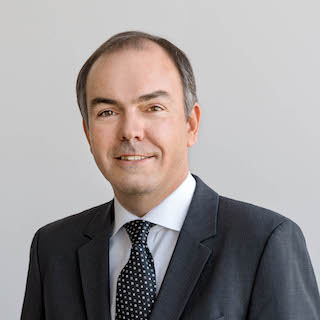
Dieter Kranzlmüller, Ph.D.
Ludwig-Maximilians-Universität München
TALK: Environmental Computing on SuperMUC-NG - A Partnership between Computer and Domain Sciences
ABSTRACT: As a leadership-class computing facility, the mission of the Leibniz Supercomputing Centre (LRZ) is to enable significant achievement and advancement in science with powerful computational resources including dedicated hardware and software coupled with computational science expertise for specific research domains. One such focus area is environmental science, which is highly relevant for our daily lives and society. With LRZ’s latest supercomputer SuperMUC-NG and its combination of a powerful general purpose architecture with integrated data science and AI capabilities, users from the environmental sciences increase the size and resolution of their model while reducing the necessary computing time. The major factor of success, however, is the partnership between the domain scientists and the computational specialists at LRZ which includes every step along discovery, from dedicated training through the entire scientific workflow during production runs. This talk introduces the LRZ partnership model and highlights a number of example use cases from environmental computing.
ABOUT: Prof. Dieter Kranzlmueller is Chairman of the Board of Directors at Leibniz Supercomputing Centre of the Bavarian Academy of Sciences and Humanities. In 2008 Dieter Kranzlmueller joined the Board of Directors at LRZ and became a full professor of computer science at the Chair for Communication Systems and System Programming at Ludwig-Maximilians-Universitaet Munich (LMU). His scientific focus lies in e-infrastructures, including network and IT management, grid and cloud computing, as well as in high performance computing, virtual reality and visualisation. Kranzlmueller graduated from the Johannes Kepler University Linz, Austria. Having spent a number of years working in the IT industry, he returned to academia to work at the universities of Reading and TU Dresden, and to act as deputy director of the EGEE project at CERN in Geneva. He is truly internationally oriented and is a member of many European and international organizations in the field of IT.
